Anxiety
Anxiety
What is it?
Anxiety is a very common experience and in its milder form can be a normal response to challenging life stressors like a job interview, exams, birth of a child etc. Anxiety is the product of:
- A physical response to real or perceived threat or significant challenge
- Thoughts that centre on worry, apprehension and fear
Anxiety can be easily experienced so it is unrealistic to expect to never feel anxious or even to never feel intense anxiety.
Anxiety can feel distressing to the extent that people can become anxious about being anxious.
Learning to better regulate stress and anxiety so it works for you can be very useful.
Anxiety about a job interview or exam at a mild to moderate level, can motivate us to prepare more effectively, for example. Once the challenge has been managed anxiety should also alleviate. This anxiety is called performance arousal.
Symptoms of anxiety
Anxiety at the more pronounced end means that individuals can feel anxiety to such an extent that it significantly disrupts their life. This can result in feelings of hopelessness and depression.
Anxiety symptoms can include:
Cognitive
- difficulty concentrating
- worry, rumination
- distractibility
- flooding, racing thoughts
Emotional
- hopelessness
- frustration
- despair
- anger
- fear
- feelings of self-loathing
Physical
- restlessness
- rapid heartbeat
- trembling or shaking
- feeling light-headed or faint
- numbness or nausea
- sweating
- swallow rapid breathing or swallow faint breathing
- panic
Behavioural
- avoidance
- difficulties with sleep
- loss of appetite and/or comfort eating
- use of alcohol/sedatives/illicit substances
- relationship difficulties
When does anxiety become a disorder?
There are several specific anxiety disorders:
- Generalised Anxiety Disorder,
- Panic Disorder,
- Social Anxiety Disorder (also known as Social Phobia: fear of public embarrassment and scrutiny), Agoraphobia,
- Specific Phobia.
Each disorder is characterised by specific triggers, thoughts and behaviours (Diagnostic and Statistical Manual of Mental Disorders 5th ed, 2013).
A supportive and in-depth assessment and tailored treatment plan is the first step in the therapeutic process.
Treatment for anxiety
Cognitive behaviour therapy
Cognitive behaviour therapy (CBT) has been found to be an effective treatment for anxiety disorders. CBT helps you change unhelpful thoughts and behaviours that can contribute and maintain anxiety and aims to build skills to manage anxiety when it arises. CBT for anxiety includes some of the following strategies:
- Cognitive restructuring: a technique to challenge negative thoughts and develop more helpful and constructive ways of thinking. This can help with perception of adequacy and feelings of self-loathing.
- Problem-solving: a technique used to help a person work through day-to-day problems. Problem-solving has been shown to help people feel more confident tackling life’s challenges, and to decrease general anxiety. Effective problem-solving skills increase a sense of mastery over regular life challenges which may help reduce anxiety.
- Exposure therapy: a treatment in which the psychologist guides the person through a series of real or imaginary scenarios to confront specific fears. Through this gradual process, the person learns to cope more effectively with these fears, build a sense of resilience and mastery, and with practise, the anxious response decreases.
- Relaxation: a range of techniques such as meditation or progressive muscle relaxation which, when practised regularly, have been found to effectively reduce anxiety.
Mindfulness
Mindfulness has been found to be effective in the treatment of anxiety.
In mindfulness, the person is helped to remain present to their thoughts and sensations, including anxiety (rather than react to anxiety by trying to push it away) and be aware of the symptoms, without judging them.
Over time, the person becomes more open to and accepting of anxious experiences thus less overwhelmed by anxiety and better able to engage fully with life.
This can be particularly useful for individuals who experience a panic response to being anxious and/or become stuck in looping negative self-beliefs.
Lifestyle changes
Lifestyle behaviours can either alleviate anxiety or worsen symptoms. Healthy lifestyle behaviours that help reduce anxiety include:
- getting regular exercise,
- reducing alcohol and caffeine intake (which can act as stimulants and make anxiety symptoms worse),
- taking part in enjoyable activities,
- improving organisational and time-management skills
- having adequate sleep.
Humanistic approaches
Anxiety can be the result of low self-esteem and confidence.
Humanistic approaches can help individuals to explore their sense of self and strengthen identity.
Anxiety may be alleviated by increasing the persons knowledge of and acceptance of self as well as building personal strengths.
Trauma therapy
Anxiety can be a symptom of exposure to a traumatic event.
In this case anxiety may be specific to reminders of the event or may generalise to broader fears.
Trauma therapy reduces anxiety through treating exposure to trauma.
At Integrative Psychology we aim to help the individual to better understand and regulate not only anxiety but their emotional responses to experiencing anxiety. Understanding anxiety as a complex response is crucial. For some individuals this may include addressing past trauma and complex current circumstances and relationships that may be serving to maintain high levels of anxiety.
Call us now for a free consultation and matching service on 03 9663 0336.
